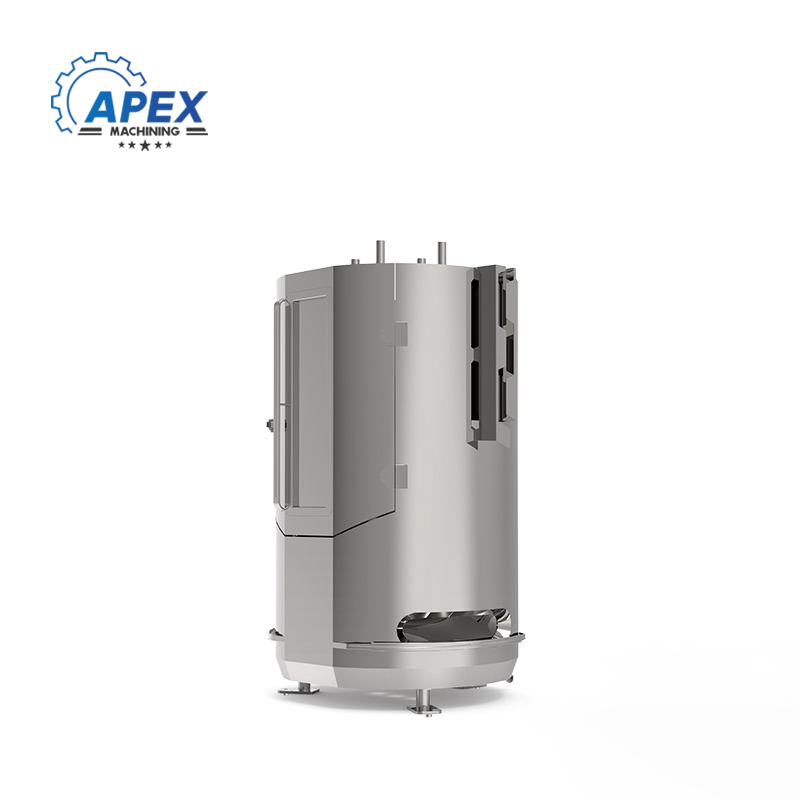BACK
Bioreactor bodies
Bioreactors are core equipment in modern biomanufacturing systems, with the characteristics of precise construction of microenvironments, modular design to adapt to diverse processes, and intelligent interconnection to facilitate efficient production.

As a critical device bridging laboratory R&D and industrial production in biopharmaceutical manufacturing, bioreactors facilitate essential processes such as cell culture, microbial fermentation, and biosynthesis. They provide stable and reliable technical support for the efficient production of biologics, including antibody drugs, recombinant proteins, and vaccines. Designed specifically for biopharmaceutical applications, this bioreactor combines scientific engineering, intelligent control systems, and flexible process adaptability, making it a cornerstone of modern biomanufacturing systems.
Precision-Engineered Microenvironment for Biological Reactions
The core value of bioreactors lies in creating optimal growth and metabolic conditions for biological materials. The main body employs corrosion-resistant alloy materials and food-grade sealing technology to maintain a strict sterile environment during cell culture and microbial fermentation, effectively preventing external contamination. The internally optimized agitation system, refined through fluid dynamics, ensures uniform mixing of culture media and efficient transfer of oxygen and nutrients, providing stable material exchange conditions for adherent cells, suspension cells, and engineered bacteria. Key parameters such as temperature, pH, and dissolved oxygen are monitored and adjusted in real time via an intelligent control system, enabling precise alignment with diverse bioprocess requirements. This enhances the expression efficiency and quality consistency of biological products.
Modular Design for Multifaceted Process Compatibility
To meet the full-cycle demands of biopharmaceutical production—from lab-scale trials to large-scale manufacturing—the bioreactor adopts a modular architecture. Whether for small-scale vessels in early process development or large-scale systems for commercial production, standardized interfaces enable seamless equipment scaling and functional integration. This flexibility supports diverse applications, including CHO cell culture for antibody production, viral vector amplification for vaccines, and E. coli fermentation for recombinant proteins. It accommodates volume transitions from milliliter to cubic meter scales. Additionally, built-in process parameter memory and intelligent replication capabilities minimize batch-to-batch setup time, accelerating production efficiency.
Smart Connectivity for Efficient Production Management
Aligned with industrial digitalization trends, the bioreactor integrates advanced IoT technologies and data management systems. By capturing real-time data on temperature, pressure, biomass, and other critical metrics, the device seamlessly interfaces with factory control systems for remote monitoring and end-to-end traceability. An embedded fault预警 mechanism detects abnormal parameter fluctuations early, while preventive maintenance strategies reduce downtime risks. Furthermore, cGMP-compliant electronic record-keeping ensures regulatory adherence, meeting the biopharmaceutical industry’s stringent quality control standards.
Sustainability Integrated Across the Manufacturing Lifecycle
Green production principles are embedded in the bioreactor’s design. Energy-efficient temperature control systems (e.g., jacketed heating/cooling) and variable-frequency drives reduce power consumption. Closed-loop piping and CIP (Clean-in-Place)/SIP (Sterilize-in-Place) functionalities minimize water and chemical usage, aligning with the industry’s dual goals of sustainability and cost-effectiveness. Recyclable materials and maintenance-friendly structures further enhance lifecycle value, supporting long-term operational sustainability.
A Strategic Partner in Core Biopharmaceutical Processes
From process validation in drug discovery to scaled production, bioreactors serve as the "engine of biomanufacturing." Beyond serving as physical platforms for cell culture and fermentation, they bridge bioprocess innovation and industrial implementation. Through precise environmental control, adaptable process integration, and intelligent management, this equipment empowers biopharmaceutical companies to elevate product yields, optimize quality standards, and accelerate R&D cycles. It drives the industrialization of biologics—from antibody therapies to next-generation vaccines—from lab benches to clinical applications.
In an era of rapid biopharmaceutical advancement, bioreactors stand as indispensable enablers of industrial progress. By merging engineering excellence with biotechnology, they continuously advance the efficient production of antibodies, proteins, vaccines, and other biologics. Whether supporting R&D in startups or scaling production in multinationals, this bioreactor delivers reliable performance and adaptability, becoming a trusted partner in the biopharmaceutical value chain. It propels breakthroughs in precision medicine and personalized therapies, underscoring its vital role in shaping the future of healthcare.